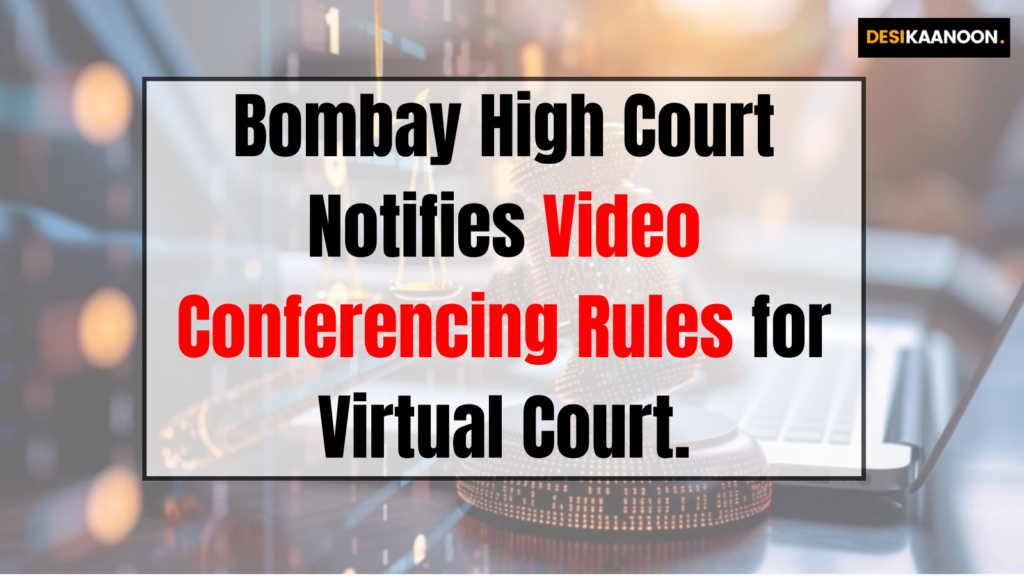Alok Singh
The Bombay High Court by exercising the powers conferred by sub-rule (i) of Rule 1 of the “High Court of Bombay Rules for Video Conferencing for Courts 2022” will implement new video conferencing rules, which come into force on 29th December 2024.
The notification to that effect was published in the Gazette on 19th December 2024.
These rules are designed to facilitate video conferencing in judicial proceedings. This will cover physical and virtual courts, as well as various points like remote points, court points, and live links.
Some facilities like desktops, laptops, cameras, microphones, and document visualizers are needed. As well as quiet, secure spaces with stable internet and adequate lighting are recommended.
Video conferencing can be used at all judicial proceeding stages and is subjected to existing legal protocols and courtesies. All these proceedings in the form of video conferencing shall be considered judicial proceedings. Further, all statutory provisions under CPC, CrPC, IT Act, and other relevant laws apply.
The rules permit various legal procedures, including charge framing, examination of the accused, and proceedings under Section 164 of the Criminal Procedure Code, to be conducted via video conferencing. However, remand—either judicial or police—can only be granted through video conferencing in extraordinary situations, with such circumstances documented in writing.
In rare instances, the court may use video conferencing to examine a witness or accused under Section 164 or to record an accused’s statement under Section 313 of the Code. These measures are contingent upon ensuring that the individual is free from any coercion, threats, or undue influence during the process.
Participants are required to provide valid government-issued identity proof or an affidavit. The new rules enable witnesses residing abroad or in custody to testify through secure video links, arranged by local authorities or Indian consulates.
A coordinator shall be present at both the Court Point and the Remote Point for examinations or hearings. At the Remote Point, a Coordinator may be required only when a witness or accused person is to be examined. The Coordinator is expected to ensure the proper functioning of all technical systems before hearings begin.
This development keeps the principle of open court proceedings in mind, allowing public viewing via shared video links. However, privacy is ensured in sensitive cases for vulnerable participants.
The rule prohibits the unauthorised recording of the proceedings by any person or entity. The audio-visual recordings are preserved as encrypted files. An encrypted master copy with a hash value shall be retained as a part of the record.
The financial burden of video conferencing generally lies on the requesting party. However, courts can waive or redistribute costs based on the circumstances, based on their discretion.
The rule also covers the Lok Adalat and jail hearings, providing that they can be conducted remotely, ensuring legal aid reaches all corners. Accused individuals in custody have guaranteed access to counsel and privacy during remote hearings.
The rules shall apply to all proceedings and Courts in the State of Maharashtra, Goa and UT of Daman and Diu and Dadra and Nagar Haveli, including Family Courts, Labour Courts, Industrial Courts, Co-operative Courts, Co-operative Appellate Courts, Motor Accident Claims Tribunals and School Tribunals.

